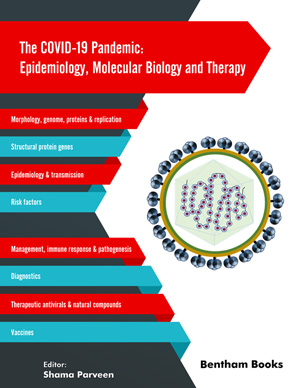Abstract
The clinical symptoms of the Coronavirus Disease 2019 (COVID-19) may vary from asymptomatic to mild to severe to critical disease. The clinical symptoms include fever, body ache, severe weakness, cough, breathlessness, nausea/vomiting, diarrhoea, change in taste/smell, etc. The management of COVID-19 patients is in its evolutionary phase since the guidelines are being updated regularly due to the gradual addition of unique symptoms to the disease. A large number of asymptomatic cases, longer incubation periods, and high transmission rates are some of the concerns of the pandemic. The treatment is supportive in the absence of a specific therapeutic drug and a prophylactic vaccine. Numerous antipyretics, existing anti-viral drugs, antibiotics supplements, and other approaches are utilized for the management of COVID-19 patients. Though at early-stage (in the upper respiratory tract), the treatment of this infection is easier as compared to its advanced stage when the infection proceeds to the lower respiratory tract. Most of the severe cases may need hospitalization, regular monitoring, and oxygen supplementation. Patients with respiratory failure may need ventilator support. The SARS-CoV-2 mediated immune response has a significant impact on infection severity, which is represented as a cytokine storm and ultimately leads to acute respiratory distress syndrome (ARSD). The present chapter describes clinical manifestations and management of COVID-19 patients. Besides this, we have also discussed the host immune response and pathogenesis of the disease. Further comprehensive patient-based clinical studies will provide insight into the additional clinical manifestations, pathogenesis, and host immune response needed to clear the virus from the human body.
Keywords: Asymptomatic, COVID-19, Clinical manifestations, Critical illness, Cytokine storm, Management, Mild illness, Pathogenesis, SARS-CoV-2, Severe illness, Treatment.






















